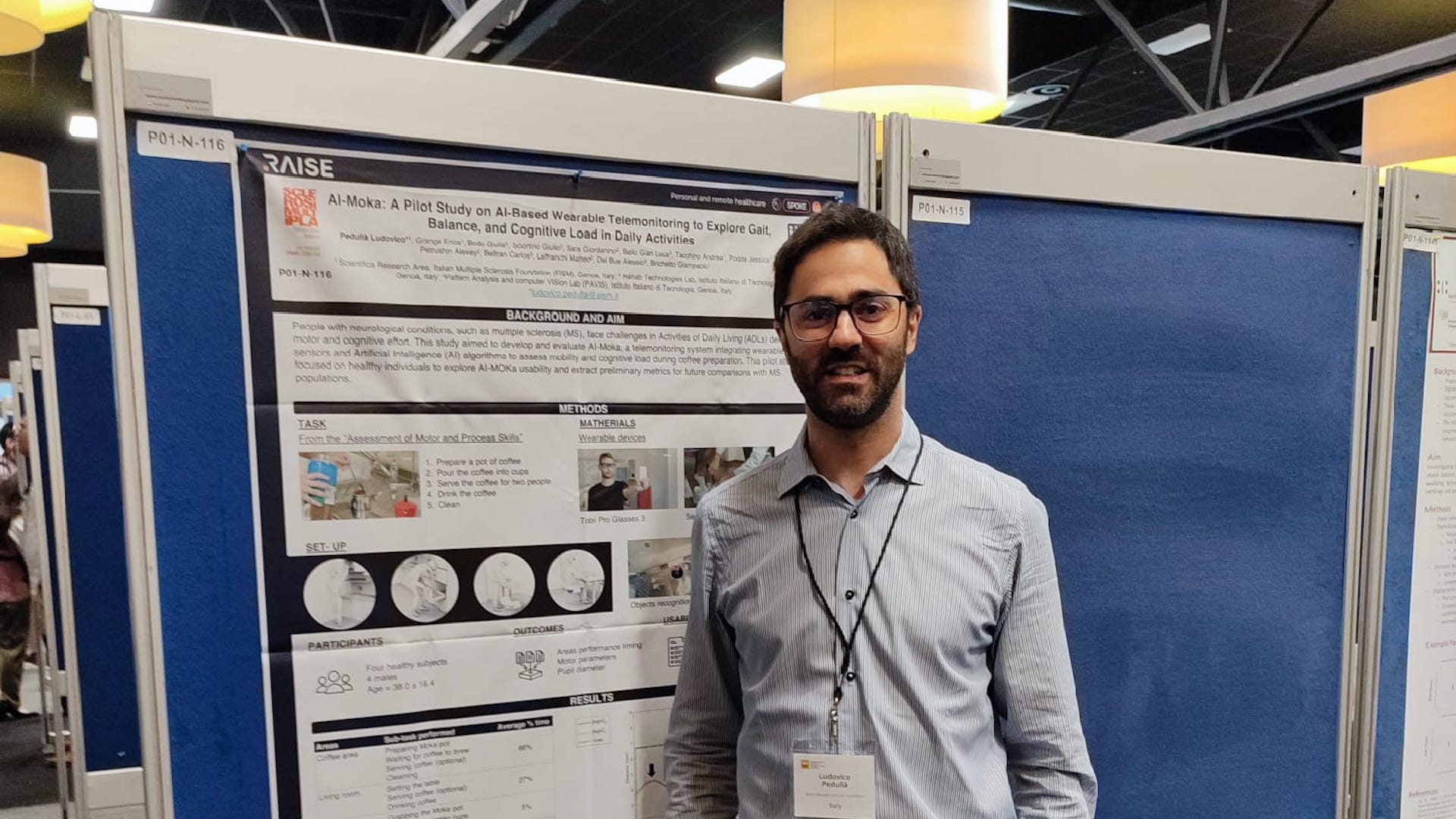AI-MOKa project progress at the International Society of Posture and Gait Research Congress


A simple daily gesture like making coffee can reveal a lot about our mobility and attention, especially in people with neurological conditions like multiple sclerosis (MS).
This is why AI-MOKa (AI-enhanced assessment of Motor and prOcess sKills in people with multiple sclerosis) was developed as part of RAISE’s Spoke 2 project: an innovative monitoring system based on wearable sensors and Artificial Intelligence algorithms, capable of simultaneously assessing movement and cognitive load during daily activities.
In recent months, the researchers involved in the project have completed the first pilot study, in which AI-MOKa was tested on a group of healthy participants to verify its feasibility and usability, with a view to future application to people with MS.
Participants performed the task of making coffee in a fully equipped kitchen, wearing Tobii Pro Glasses 3 to monitor their visual environment and pupil dilation, and Sensing Tex insoles to detect the distribution of foot pressure.
Thanks to sophisticated AI algorithms, the system identified in real time the different operational areas of the kitchen, the phases of the task, and interactions with objects such as cups, sugar, and the coffee pot. Quantitative data were then extracted on gait (number of steps), balance (weight distribution between the left and right foot), and cognitive load (variations in pupil diameter).
The results are promising: AI-MOKa detected an average of 159 total steps during the task, with increased cognitive engagement during the more complex phases such as handling the moka pot and serving the coffee. Furthermore, participants rated the system positively in terms of comfort (4.1/5), low intrusiveness (5.0/5), and usability (4.8/5), emphasizing its natural feel and suitability for use in real-world environments.
This initial study demonstrates the potential of AI-MOKa to comprehensively monitor movement and attention during household activities, paving the way for future clinical developments.
The study results were presented at the International Society of Posture and Gait Research Congress.
The authors of the study and poster are:
– Ludovico Pedullà, Erica Grange, Andrea Tacchino, Jessica Podda, Giampaolo Brichetto (Scientific Research Area, Italian Multiple Sclerosis Foundation, Spoke 2);
– Giulia Bodo, Sara Giordanino, Alexey Petrushin, Matteo Laffranchi (Rehab Technologies Lab, Italian Institute of Technology, Spoke 2);
– Giulio Sciortino, Gian Luca Bailo, Carlos Beltran-Gonzalez, Alessio Del Bue (Pattern Analysis and Computer VISion Lab (PAVIS), Italian Institute of Technology).
Next steps will include expanding the sample, technically refining the system, and, most importantly, applying it to people with multiple sclerosis to support functional assessment and personalize rehabilitation interventions.
RAISE’s AI-MOKa represents a new frontier in ecological and personalized assessment of the daily challenges experienced by those living with neurological conditions.
Image Cover
Ludovico Pedullà (FISM, Spoke 2) at the International Society of Posture and Gait Research Congress
Author: Costanza Iester (UniGe)
Credits: UniGe and RAISE
